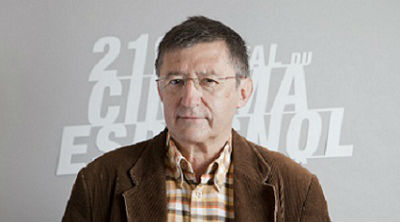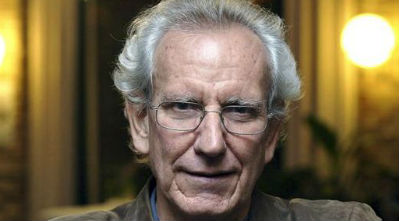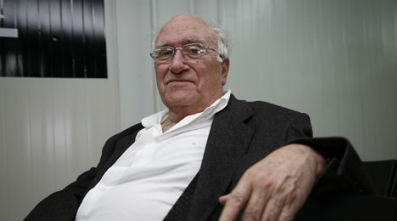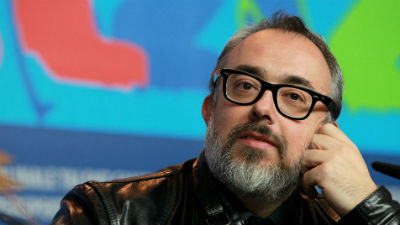
FRANCISCO BETRIU.
Francisco Betriu is a director
whose future films promise to be better than his last. Accordingly,
much can be expected from him in years to come in terms of high
quality movies. After filming together, in the very early days of
my career, "La viuda andaluza" (The Andalusian Widow), we got
together again with "La duquesa roja" (The Red Duchess), "Una
pareja perfecta" (A Perfect Couple) and "El paraíso ya no es lo que
era" (Paradise is no longer what it used to be like). When I first
met him he was making films about the things in life that he
observed. Today it seems he is living his experiences instead of
filming them. He is a good director with whom I would like to do a
successful movie. We have laughed together a lot, although that
isn't what induces me to work with him.

JAIME CHÁVARRI.
To Jaime Chávarri I am indebted for
having directed "Las cosas del querer" (The Things of Love), "La
intrusa", from the Boges's series, and "Sus ojos se cerraron y el
mundo sigue andando" (Tangos Are for Two). Jaime is an excellent
friend, close to the generation of Carlos Saura, shaped in the
workshop of Elias Querejeta, so to speak. With the latter he has
made his best films and I think he hasn't yet broken completely
free from him. It isn't by chance that he is one of Saura's
favorite Spanish directors and that he always has some pending
project with his former producer, Querejeta.

VICENTE ARANDA.
With regard to film director
Vicente Aranda I acknowledge his great professionalism and honesty,
but I feel that I have failed in my relationship with him. We
filmed together "El amante bilingüe" (The Bilingual Lover), which
Juan Marsé, the author of the novel, wanted Mario Camus to direct;
"La pasión turca" (The Turkish Passion), which Antonio Gala, also
in this case the writer, wanted Mario to direct; "Libertarias"
(Women Freedom Fighters), for many years the impossible dream of
Aranda, and "La mirada del otro" (The Naked Eye). In the case of
the latter, I wanted him to do this screen adaptation of the novel
by Fernando Delgado and, in view of the movie's very negative
reviews after it premiered, he got upset with me. I think that deep
inside it was because I didn't go along with him in the childish
projects he devised to take his revenge on the film critics. In
2007 we filmed "Canciones de amor en Lolita´s club" (Lolita's
Club).

ÁLEX DE LA IGLESIA.
Álex de la Iglesia is a director I
never actually sought out. I wasn't excessively interested in a
director who had worked with Almodóvar as his producer, although I
always admitted that his first film, "Acción mutante" (Mutant
Action), contained twelve minutes of good cinema. Buñuel wrote for
the press-book of "Peppermint frappé" that a film is worthwhile if
it has five minutes of good cinema, or words to that effect, and
""Peppermint frappé" had more than ten. When Álex offered me to
produce the incredible movie: "El día de la bestia" (The Day of the
Beast), I recalled Buñuel's remark and said to myself that I should
go ahead with Alex. The script, which had been rejected by several
production companies, El Deseo, Sogetel and Tesauro, was very
uneven and yet Alex wanted to start shooting in two month's time on
the grounds that he wanted to take advantage of the upcoming
Christmas and that there would be decorations on the streets.
Eventually, we reached an agreement: I would let him film for one
week during Christmas so that the material would be available and
he would accept to have the script revised. Antonio Saura -who at
the time was my closest collaborator- and I bombarded him with
reports, suggestions and pressure. The rest of it is cinema
history.
Alex is crazy about filming. It really makes him happy and, if
it came to it, he would even make a film based on the telephone
directory. Together we have done "El día de la bestia" (The Day of
the Beast), "Perdita Durango", "Muertos de risa" (Dying of
Laughter), "La comunidad" (Common Wealth) and "La chispa de la
vida" (As Luck Would Have It). His creative talent, his visual
depth and his esthetics make of him a great director. He has a big
career ahead of him and like the good Basque he is, most likely he
will eventually emigrate to America, even if only to be a cattle
farmer.